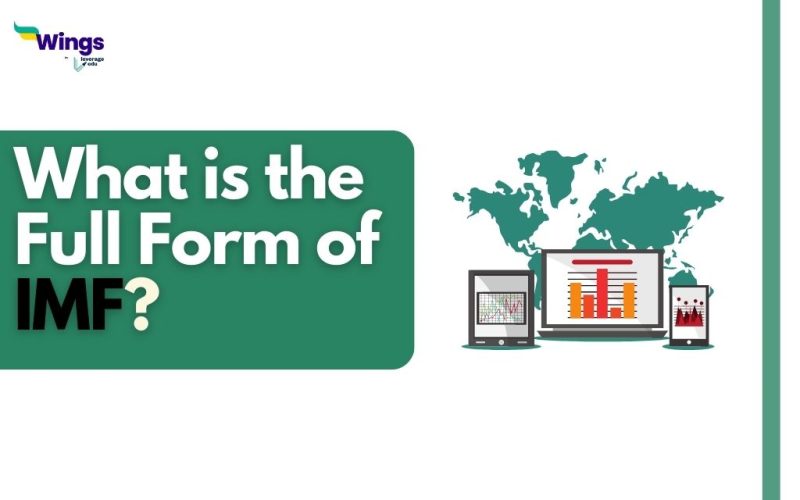The full form of IMF is International Monetary Fund. It is a global financial organisation that works toward achieving prosperity and sustainable growth for all its member nations. IMF constantly strives to support economic policies that promote monetary cooperation and financial stability of its 190 members. It always promotes policies that are dedicated to creating jobs, increasing productivity, and economic growth of the said countries.
All 190 members collectively work toward achieving 3 missions of the International Monetary Fund. These 3 missions include encouraging member countries to expand trade and promote economic growth; discouraging economic policies that would adversely affect prosperity, and facilitating international monetary cooperation.
Also Read: Discover the Most Powerful Organizations in the World in the World
History of IMF
Table of Contents [show]
The history of the IMF can be traced back to the 1940s. Established in March 1944, this organisation has evolved to become a 190-member global entity that works towards economic development. To understand the background and evolution of IMF, let us have a look at the following timeline:
- July 1944: The Bretton Woods Conference brought together delegates from 44 Allied nations to create a new economic framework based on global collaboration, aiming to prevent a recurrence of the Great Depression and World War II. The conference established a system of currency exchange rates tied to the U.S. dollar, overseen by the IMF. The IMF was entrusted with three main responsibilities: fostering worldwide monetary cooperation, aiding trade and economic growth, and discouraging policies that could hinder prosperity.
- May 1945: On May 8, 1945, Victory in Europe Day (VE Day) occurred as Germany surrendered to the Allied forces, marking the conclusion of the European conflict in World War II.
- March 1947: The IMF initiates its activities with 40 founding members, which eventually expands to 189 countries by 2016, including the addition of Nauru.
- March 1950: Poland exits IMF due to Soviet pressure, reflecting the escalating Cold War tensions. Poland will later rejoin the IMF in 1986.
- 1961: IMF establishes the Africa Department. Initially, only three of the IMF’s original members were from Africa: Egypt, Ethiopia, and South Africa. However, by the close of 1969, an additional 34 African nations have become members of the IMF.
Also Read: What is the Full Form of UNO?
Activities of IMF
Here are five key activities of the International Monetary Fund (IMF):
- Economic Surveillance: The IMF monitors global and individual country economies, providing analysis and policy recommendations to promote stability and growth.
- Financial Assistance: The IMF offers financial support to member countries facing balance of payments problems, helping them stabilize their economies and implement necessary reforms.
- Technical Assistance: The IMF provides expertise and advice to member countries in areas like tax policy, public expenditure management, and financial regulation.
- Capacity Development: The IMF helps strengthen institutions and human resources in member countries, enabling them to manage their economies effectively.
- Research and Analysis: The IMF conducts research on global economic trends, policies, and challenges, contributing to international economic understanding and cooperation.
Also Read: What is the Full Form of UNESCO?
This was all about the IMF Full Form. Visit our Full Form Page to discover more intriguing articles about full forms. You can also get a consolidated list of 300+ full forms here! Get in touch with the experts at Leverage Edu in order to kickstart your study abroad journey!
 One app for all your study abroad needs
One app for all your study abroad needs















 45,000+ students trusted us with their dreams. Take the first step today!
45,000+ students trusted us with their dreams. Take the first step today!
